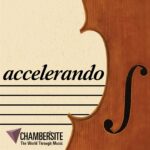
Muzio Clementi was respected and praised by most of his contemporaries, especially Beethoven. Mozart paid respects by quoting or borrowing some of his themes, as composers did often in the classical era. Mozart may have been envious of Clementi’s technique and the two were put side by side on a Christman Eve’s concert type competition in Vienna. No winner was declared and it seems the purpose was to delight the audience and the Emporer. After, Mozart told his father Clementi was talented, but nothing special. One wonders if he was a bit intimidated by the older keyboardist. In time Clementi would instruct pianists that would influence the best players in the world.
More in the show notes at https://accelerandocast.com/show_notes/